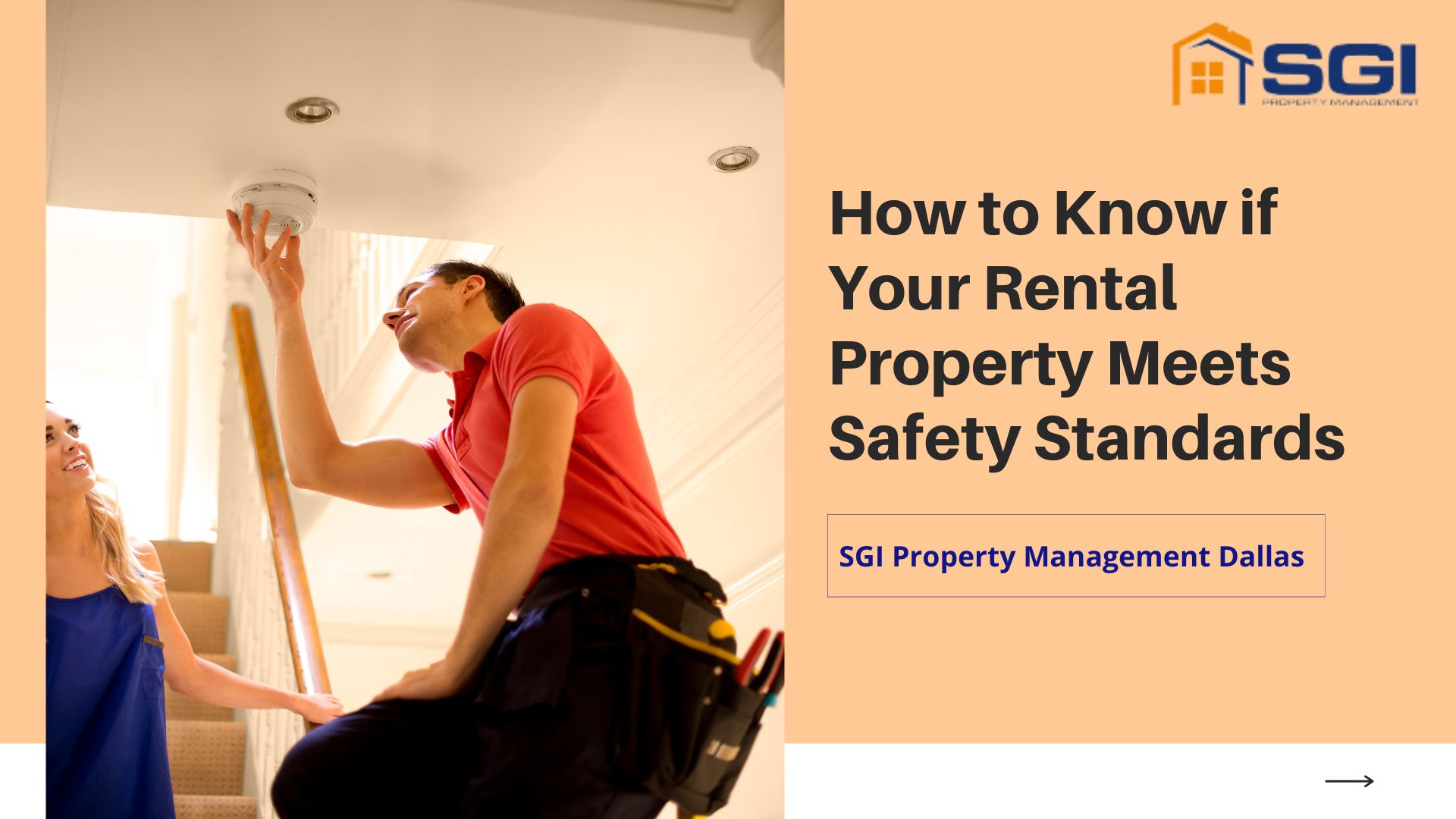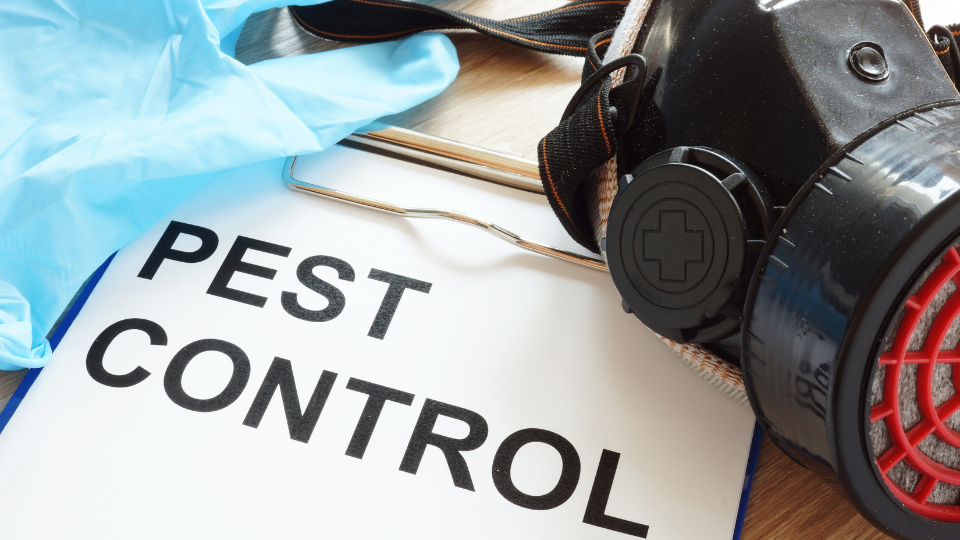
Renting out a property comes with a host of responsibilities, chief among them being the assurance of tenant safety. The integrity of your rental property is not just about ensuring a comfortable living space; it's also about upholding safety standards that can protect your tenants from potential hazards.
Neglecting safety standards is not merely a moral lapse; it's a legal liability that can result in lawsuits and fines. As such, it is the responsibility of you as the property owner to be proactive when it comes to maintaining the safety of their rental properties.
In this guide, we'll take an in-depth look at various safety aspects and how to ensure your property complies with them.
Outdoor Railings
Outdoor railings, such as balconies, decks, and staircases, are crucial safety features preventing falls and accidents. When inspecting outdoor railings, check for stability and security.
Ensure that the railings are firmly attached to the structure and do not have any loose or wobbly parts. The height of the railings should comply with local building codes to prevent falls.
Additionally, inspect the condition of the railings for signs of deterioration, such as rust or rot. If you notice any safety concerns with the outdoor railings, it is essential to arrange for necessary repairs or replacements to maintain a safe living environment.
Quick response times are especially important for emergency repairs.
_1.png)
Paint Safety
For properties constructed before 1978, lead-based paint can be a significant safety concern, especially for families with young children. Federal law mandates property owners disclose any known lead-based paint hazards and provide tenants with educational materials. Lead-based paint can lead to lead poisoning, causing cognitive and developmental issues in children.
Property owners must address lead-based paint hazards by safely containing or removing them, taking preventive measures, and keeping tenants informed to maintain a safe and healthy living environment.
Appliance Maintenance
Faulty appliances can pose a risk of fires, electrical shocks, and gas leaks, jeopardizing tenant safety. Regular maintenance checks for appliances ensure they are in good working condition. Property owners should provide tenants with clear instructions for safe appliance use, and address reported issues promptly.
Neglecting appliance maintenance can result in dangerous situations, such as electrical fires or gas leaks, and it's the responsibility of the property owner to prevent these risks.
Pest Infestation
Pest infestations not only diminish the quality of life for tenants but can also pose health and safety risks. Pests like rodents and insects can carry diseases, damage property, and trigger allergies.
Property owners must proactively prevent infestations by maintaining a clean property to help control them. Professional pest control services should be engaged promptly to ensure tenant safety and comfort when a pest issue arises.

Carbon Monoxide and Smoke Detectors
Smoke detectors are indispensable safety features in any rental property, serving as the first line of defense in the event of a fire.
Proper placement is crucial; they should be installed in key areas such as bedrooms and hallways, ensuring that tenants are alerted. Regular maintenance of smoke detectors is vital to ensure their effectiveness.
Property owners should replace the batteries at least once a year, typically when daylight saving time begins or ends, and replace the entire detector every ten years.
In addition to these maintenance tasks, ensuring that smoke detectors are correctly installed and functional is a primary responsibility of property owners, as it significantly contributes to tenant safety.
GFI Outlets
Ground Fault Circuit Interrupters (GFCIs) are electrical safety devices designed to protect against electrical shocks. GFCIs are especially important in areas with water, such as bathrooms and kitchens. They work by quickly cutting power if an electrical fault is detected, preventing potentially lethal electrical shocks.
Property owners should install GFCIs in these areas and ensure they are tested monthly to guarantee they function as intended. Neglecting GFCIs can put tenants at risk of electrical accidents and falls.
Stairways and Walkways Safety
Stairways and walkways in rental properties need to be well-maintained to prevent accidents. Handrails should be securely fastened, steps should be in good condition, and adequate lighting is crucial to prevent slips and falls.
_6.jpg)
Regular inspections help identify and rectify potential risks like loose steps or uneven surfaces. Ensuring the safety of these areas is a property owner's responsibility to prevent accidents and injuries on their property.
Plumbing
A well-functioning plumbing system is essential for tenant safety and comfort. Leaks, drips, or other plumbing issues should be checked for regularly. Promptly addressing problems prevents water damage and the growth of mold, which can pose health hazards.
Property owners must also ensure that hot water temperatures are within safe ranges to prevent scalding accidents, thereby maintaining a safe living environment for their tenants.
Floorings, Walls, and Ceilings
The structural integrity of a rental property is critical for tenant safety. Cracked or uneven floors, sagging ceilings or walls with visible structural issues can pose significant risks.
These issues can lead to slips, trips, falls, or even structural collapse if left unaddressed. Property owners should promptly repair any damage or structural issues to prevent accidents or injuries, maintaining the safety and well-being of their tenants.
Doors and Windows
Doors and windows not only provide security but are integral to tenant safety. All doors and windows should lock securely, providing security and privacy for tenants.
Tenant damages, such as broken or damaged doors and windows ,must be repaired or replaced promptly to prevent unauthorized use. Ensuring the security and integrity of these entry points is a fundamental responsibility of property owners to provide tenants with a safe living environment.
Conclusion
In conclusion, ensuring that your rental property meets safety standards is not just a matter of compliance; it is a fundamental duty property owners owe their tenants.
From the installation and maintenance of smoke detectors and carbon monoxide alarms to addressing issues like lead-based paint, appliance upkeep, pest control, and structural integrity, each facet discussed in this guide contributes to the overall safety and well-being of tenants.
SGI Property Management understands the gravity of these responsibilities and is dedicated to supporting property owners in upholding the highest safety standards.
Our team conducts thorough safety inspections, handles maintenance tasks, and ensures that your rental property complies with all safety regulations, creating a secure and pleasant environment for your tenants.









